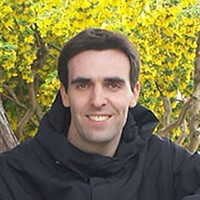Boston’s St. Patrick Day’s parade planners face backlash over gay vets ban
Loading...
Two years after marching for the first time, whether gay veterans can participate in this year’s Saint Patrick’s Day Parade is once again an open question.
The South Boston Allied War Veterans Council voted 9 to 4 on Tuesday to ban the OutVets group from marching, prompting immediate criticism from Boston’s mayor, and other high-ranking politicians. The council has scheduled an emergency meeting to reconsider the decision on Friday, just two days before the famous celebration of Irish-Catholic heritage.
The reason for the reversal remains unclear. According to OutVets founder Bryan Bishop, officials say the group broke parade rules prohibiting symbols of gay sexuality when they carried a rainbow banner. But he insists they’ve made every effort to conform to the parade’s code of conduct.
”If we did break any rules, we were never informed," Mr. Bishop told the Associated Press. He claims the flag issue has been resolved.
The vote prompted swift political backlash, starting with Boston Mayor Marty Walsh, who intends to resume the 20-year parade boycott Boston mayors have carried out ever since the Supreme Court upheld the Allied War Veterans Council’s right to ban LGBT from participating in 1995.
"I will not tolerate discrimination in our city of any form," he said in a statement.
Mayor Walsh was joined by Republican Gov. Charlie Baker and US Rep. Seth Moulton, as well as the 2017 parade chief marshal, Dan Magoon, the executive director of Mass Fallen Heroes, who resigned over the vote.
"The freedom that we possess to hold such an event as the St. Patrick's parade is due to the men and women who have spilled their blood in defense to this great nation, regardless of their race, religion, gender or sexual orientation," he wrote in a letter to the council.
Bishop said his suspicions that the council might reverse their decision reach back to November, when Brian Mahoney, the former head of the veterans’ council and OutVets ally, died.
"The only thing I can assume is that with Brian no longer there to beat the drum for us they had enough support to put us out," Bishop told the AP.
Sponsors area also objecting to the ban: the Anheuser-Busch brewing company says it's reconsidering its participation and the local grocery store chain Stop & Shop says it will pull out if the ban remains.
The parade, which draws as many as 1 million spectators to South Boston each year, first welcomed OutVets and Boston Pride to march in 2015, ending Mayor Walsh’s boycott.
“I’m thrilled that the St. Patrick’s Day parade is inclusive this year, and the addition of Boston Pride to the list of participants reflects the values of the South Boston neighborhood,” he said in a statement at the time. “With this year’s parade, Boston is putting years of controversy behind us.”
Some Catholic groups had long opposed the change, saying that it contradicts the Catholic culture celebrated by the parade. While almost all groups with a religious affiliation marched as planned that year, two withdrew in protest.
“We deeply regret that some have decided to use this occasion to further the narrow objectives of certain special interests, which has subjected this occasion to undeserved division and controversy,” wrote the Massachusetts chapter of the Knights of Columbus at the time, condemning the politicization of the parade.
“Call it the Evacuation Day Parade. Call it the South Boston Irish Pride Festival,” Catholic Action League Executive Director C.J. Doyle wrote on the group's website. “Call it whatever you want, but don't debase the name of Saint Patrick by associating it with the tawdry circus that will take place on Broadway [Street] tomorrow,” said The Catholic Action League.
Such resistance highlights the growing opinion gap even within the Catholic community, where a 2014 Pew Research Center poll showed 85 percent of self-identifying Catholics under 30 said society should accept homosexuals, as opposed to 57 percent of those 65 and older.
Against a cultural background of growing inclusion, the decision to suddenly exclude the groups from the 2017 parade came as a shock to many.
Ed Flynn, a member of the South Boston Allied War Veterans Council and Navy veteran who voted in favor of OutVet said he was "saddened and outraged" that the council "voted to turn back the clock on equality."
Until the council takes another look at that clock on Friday, many worry about the image the decision projects.
"This is a black eye on South Boston," said Bishop.
This report contains material from the Associated Press.








